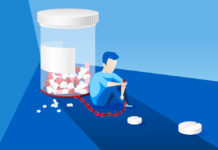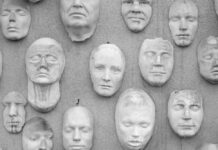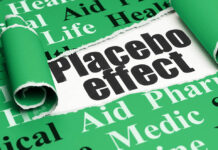Do Depression Pills Improve Quality of Life?
In the upside-down world of psychiatry, the pills that destroy your sex life are called happy pills. I call them unhappy pills or anti-sex pills.
What I’ve Learned about Tapering Psychiatric Drugs—A Holistic Therapist’s Perspective
Liberation from pharmaceuticals is possible, but it is not an easy journey. I advocate for informed consent.
The Iatrogenic Gaze: How We Forgot That Psychiatry Could Be Harmful
The victims of psychiatric iatrogenesis believed they were taking a vitamin, only to later realize it was poison.
Working to Transmute the Pain: Why I Do the Work I Do
I sought help and followed the prescribed path. About twenty years later, I began to question, "What is happening? Why am I still stuck?"
Modern Psychiatry and the Human Soul and Spirit: Is Our Freedom at Stake?
The medications are there to disconnect us from our divine, creative Self, but the human being is remarkable and incredibly resilient.
A Polyvagal Understanding of Being Human
At the core of trauma is the alienation from ourselves, our bodies and our emotions caused by our modern lifestyle.
Impacting Parenting from a Place of Strength: Looking Back to Move Forward
You may forget what people did for you, but you will never forget how they made you feel.
Flying While Depressed? The FAA’s Troubling New Antidepressant Standards
The FAA should reconsider the policy on drugs that are ineffective for depression and increase the risk of suicidality and violence.
Mishiguene
From my grandmother I learned about mishiguene, which means crazy in that ironic and funny tone that Yiddish can have in some families.
To Young People of Color with Lived Experience: Pay it Forward; Become a Peer
A Peer Support Specialist tells her story and issues a callout to the BIPOC LatinX community, advocating for change.
The Co-Opting of the Peer Movement in Mental Health
Bureaucratic red tape often overshadows the quality of therapeutic engagement. Protocols often trump empathy, and paperwork overshadows personalized care.
When It Comes to Post-Surgical Opioid Tapering, You’re on Your Own!
I firmly believe that the people who give patients drugs have a responsibility to help people get off the drugs.
The Birth of The “Just Stop It” Movement: A Family’s Journey Through Mental Health...
Will was plunged into an extreme state following exposure to a synthetic street drug, which led to repeat hospitalizations and psych drugs.
Violence Caused by Antidepressants Ignored Once Again by Psychiatrists
Based on RCTs, antidepressants double the risk of harms related to suicidality and violence. Why do psychiatrists ignore this data?
My Story of Surviving Psychiatry
This belief that there was something fundamentally wrong with me reinforced the damage done by repeated experiences of abuse, rejection, and discrimination.
How to Know if You Have an Abusive Therapist
Your therapist is, first and foremost, a regular person. No matter how many degrees, years of training, or fancy certificates, they are still human.
Part 4: Neurodiversity: New Paradigm, or Trojan Horse?
Promoters of "neurodiversity" replace existing forms of oppression with new "neuro" versions that still decontextualise our struggles.
Escaping the Hell of Protracted Withdrawal Syndrome
I painfully and gradually learned to function with my dysfunctions. Over time, I noticed genuine improvement.
We Are Amidst the Age of Behavioral Alchemy
How the Reality Approximation Engine allows us to rethink psychology, mental health care, and perhaps even society.
Trust Among Those People in Prison, Rising From the Borderlands
With a vision to transcend the cycle of incarceration into a restorative model of justice, rituals are integrated alongside acupuncture.
Part 3: Neuro-Authenticity, Neuro-Identities, and the Neuro-Industry
The medicalisation of ordinary human existence continues apace, thinly disguised as embracing the authentic self.
What Is Beyond a Diagnosis?
One of the counselors at the crisis center asked me a simple but profound question; Are you ready to let go of your story?
The Power of Suggestion and the Problematic Insignificance of Significance
The power of suggestion: what my experience with hypnotism taught me about the placebo effect.
Part 2: Are We All Neurodivergent Nowadays?
The unacknowledged politics of neurodiversity: How neoliberalism and exploitation help explain the rise of neurodiversity rhetoric.
Theodoric of Arizona: State-Sanctioned Pharma-Based Pseudo-Doctor
I propose Theodoric’s Principle of Medical Advancement: “Medicine has advanced when the old standard of care becomes a joke.”































